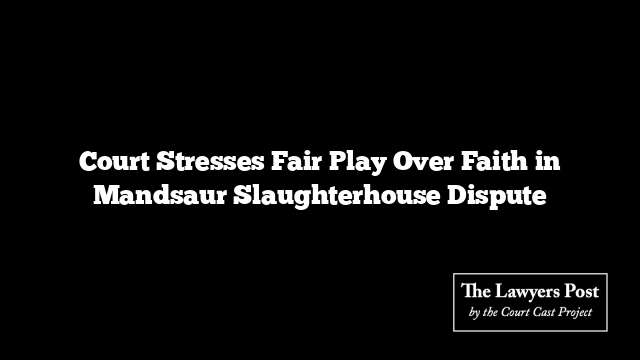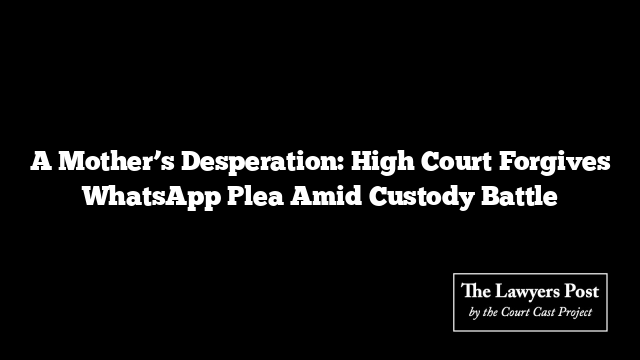A man’s bid to set up a slaughterhouse in Mandsaur has sparked debate over the intersection of law, religion, and urban governance, culminating in a decisive ruling from the Madhya Pradesh High Court’s Indore Bench.
The Court firmly criticized Mandsaur’s municipal council for rejecting a No Objection Certificate (NOC) by labeling the city as a “religious area.” Justice Pranay Verma dismantled this reasoning, stating, “The entire city cannot be considered sacred merely because a small section has been designated as such.”
Back in 2011, the state issued a notification declaring a 100-meter radius as a sacred zone within Mandsaur. The municipal authority, however, interpreted this limited designation to justify citywide restrictions on slaughterhouses. The Court ruled this interpretation as legally untenable.
The petitioner, Sabir Hussain, had argued that his proposed site fell well outside the sacred zone and pointed to a 2017 judgment permitting a temporary slaughterhouse setup in a similar case. He sought comparable relief, underscoring the ongoing delays in designating permanent slaughterhouse locations.
The municipal council and police opposed the plea, citing concerns about religious sentiments. State authorities contended that granting the NOC would offend local beliefs, though they admitted that steps to establish a modern facility were still in process.
Rejecting these defenses, the Court highlighted that administrative delays cannot override legal rights. It ordered the municipal council to issue an NOC to Hussain, stipulating compliance with environmental laws, including the Water and Air Acts, before operations could commence.
Justice Verma emphasized a balanced approach, reminding the authorities that regulations, not subjective interpretations of religion, should guide governance.
This ruling sets a precedent for distinguishing between faith-based considerations and the lawful functioning of civic institutions, underscoring the judiciary’s role in maintaining that fine line.





